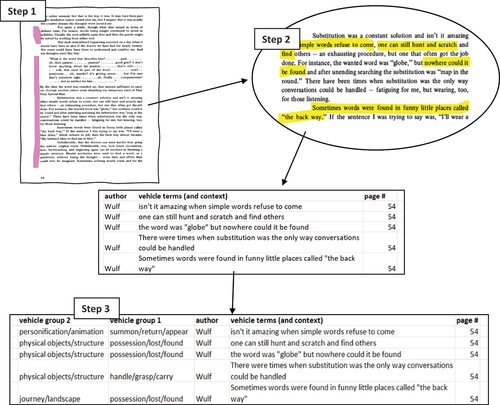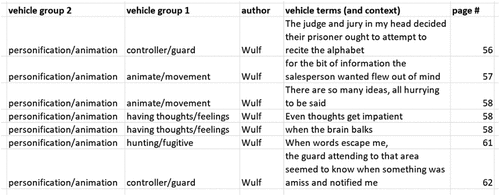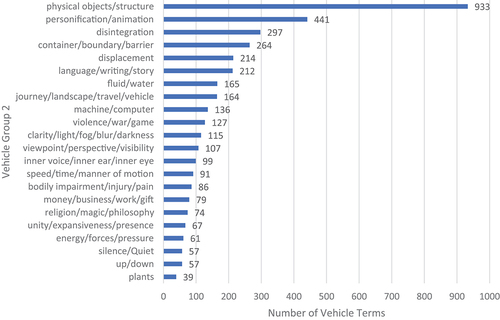Figures & data
Figure 2. Illustration of Metaphor Identification and Coding into Vehicle Groups 1 & 2 using an Extract from Wulf (Citation1973)

Figure 3. Examples of Data Sorted (by Vehicle Group 2, Author, and order of occurrence) for description of Systematic Metaphors

Table 1. Twelve most frequent Vehicle Group 2 Codes, that is, the broader semantically related groupings of vehicle terms which allow for comparison across accounts.
Table 2. Variations of the conventional metaphor word production as moving an object out of a container used across all or most accounts to describe the initial or overall experience of word production difficulties, or to emphasize their severity or strangeness.
Table 3. Variations on the conventional metaphor word production as moving an object out of a container used to describe more specific aspects of word production difficulties.
Table 4. Examples of the conventional metaphor word production as a journey/hunt, with an emphasis on mind as landscape used to describe effort, difficulty and use of strategies, and an emphasis on words as animate to describe a lack of control, or production of errors.
Table 5. Examples of conventional metaphor aphasia as bodily impairment used to specify and differentiate impairment at different stages of word production.
Table 6. Examples of aphasia as fragmentation and personification of self and self as machine/computer
Table 7. Examples of novel metaphors aphasia as silence, aphasia as a spiritual experiencespiritual experience and aphasia as a dismembered treedismembered tree
Table 8. Summary of the suggestions made in this study about how metaphors used in subjective descriptions may align with our objective understanding of word-production difficulties.


